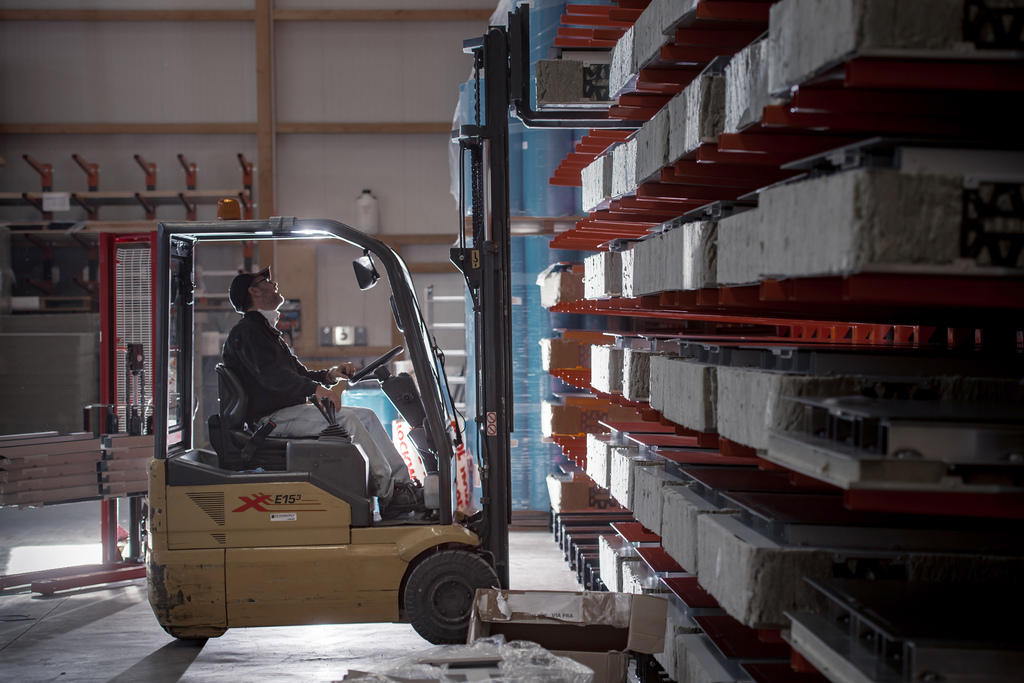Open borders key to Swiss pharma’s EU success

Every day, more than 4,000 staff cross from France and Germany to work at Novartis, the Swiss pharmaceuticals company. Its campus in the Swiss city of Basel even has a gate directly on the French border. Across town at rival Roche, a similar number of local employees have a cross-border commute.
Such daily routines highlight the importance to Switzerland’s drugmakers of maintaining close relations with the EU – even though the country is not part of the 28-nation bloc. Switzerland’s porous border also helps highlight an issue high on the minds of UK pharmaceuticals executives: how can European drugmakers thrive beyond the EU’s formal borders? Pharmaceutical companies have been among the most vocal in warning that Brexit poses danger to their business models.

More
Financial Times
External linkThe Swiss have been outside the EU since they rejected joining the European Economic Area in 1992. Nevertheless, Novartis and Roche are two of the world’s top five drug companies by total revenues. The sector provides jobs directly or indirectly to more than 200,000 workers. While Switzerland is best known for its watches, cheese and chocolate, pharmaceuticals exports are more important than all three industries combined.
Swiss drugmakers have what appears almost a frictionless trading relationship with EU neighbours, based on “mutual recognition” agreements that accept Swiss standards and inspection procedures, so controls take place only once, in Switzerland. Swiss executives say that in practice they have no significant competitive disadvantages when selling medicines into the EU.
True, paying for an independent regulator in their home market adds to costs. But sometimes drug approvals are quicker to obtain in Switzerland, allowing the companies to take a more innovative approach in a relatively small, but affluent and sophisticated local medical sector.
British version?
A similar deal could be struck for the UK. However, there is an important condition attached to Switzerland’s deal with the EU. The principle of mutual recognition is embedded in bilateral EU/Swiss deals dating from the 1990s. Crucially, they also commit the affluent Alpine country to accepting the free movement of EU nationals to work and live across its borders. (Switzerland is also part of the passport-free Schengen zone.)
It is a condition happily accepted by Swiss industry. Corporate leaders argue high-cost Switzerland only makes sense as a business location if it can attract skilled staff and access global research networks. It is one of the few issues on which Swiss business leaders put their heads above the parapet. Severin Schwan, Roche’s Austrian chief executive, has not been afraid of creating local controversy with outspoken warnings against curbs on foreign recruitment. “The free movement of employees is very important for us,” Roche confirmed.
Political threats
Switzerland’s deal might appear solid. Behind the scenes, however, there is anxiety among executives that current favourable arrangements face two significant threats. The first is the domestic political pressure for tougher rules on the free movement of people. In February 2014, a Swiss referendum vote threatened to wreck relations with the EU by backing quotas on immigration from the bloc. It was the latest campaign success of the veteran nationalist Christoph Blocher’s Swiss People’s Party (SVP).
The referendum result was eventually implemented last year in a mild form – allowing Switzerland to escape retaliation from Brussels. But the topic could return in future elections. If Switzerland changes its stance on the free movement of people, “guillotine” clauses could render invalid other bilateral deals allowing easy access to EU markets. Until it became clear how the 2014 vote would be implemented, Brussels reduced Switzerland’s access to EU research programmes. The second threat is that as Brexit proceeds, the EU will want to re-work the deal it has with similarly recalcitrant Switzerland. The country already faces pressure for an “institutional framework” deal, which would involve Swiss laws changing automatically as EU rules evolved – a proposal fiercely rejected by the SVP and which could threaten fresh conflict.
As one Swiss pharmaceuticals executive says: “The arrangements we have at the moment are fine – but I’m not 100% sure we can maintain that relationship.”
Copyright The Financial Times Limited 2017

In compliance with the JTI standards
More: SWI swissinfo.ch certified by the Journalism Trust Initiative











You can find an overview of ongoing debates with our journalists here . Please join us!
If you want to start a conversation about a topic raised in this article or want to report factual errors, email us at english@swissinfo.ch.